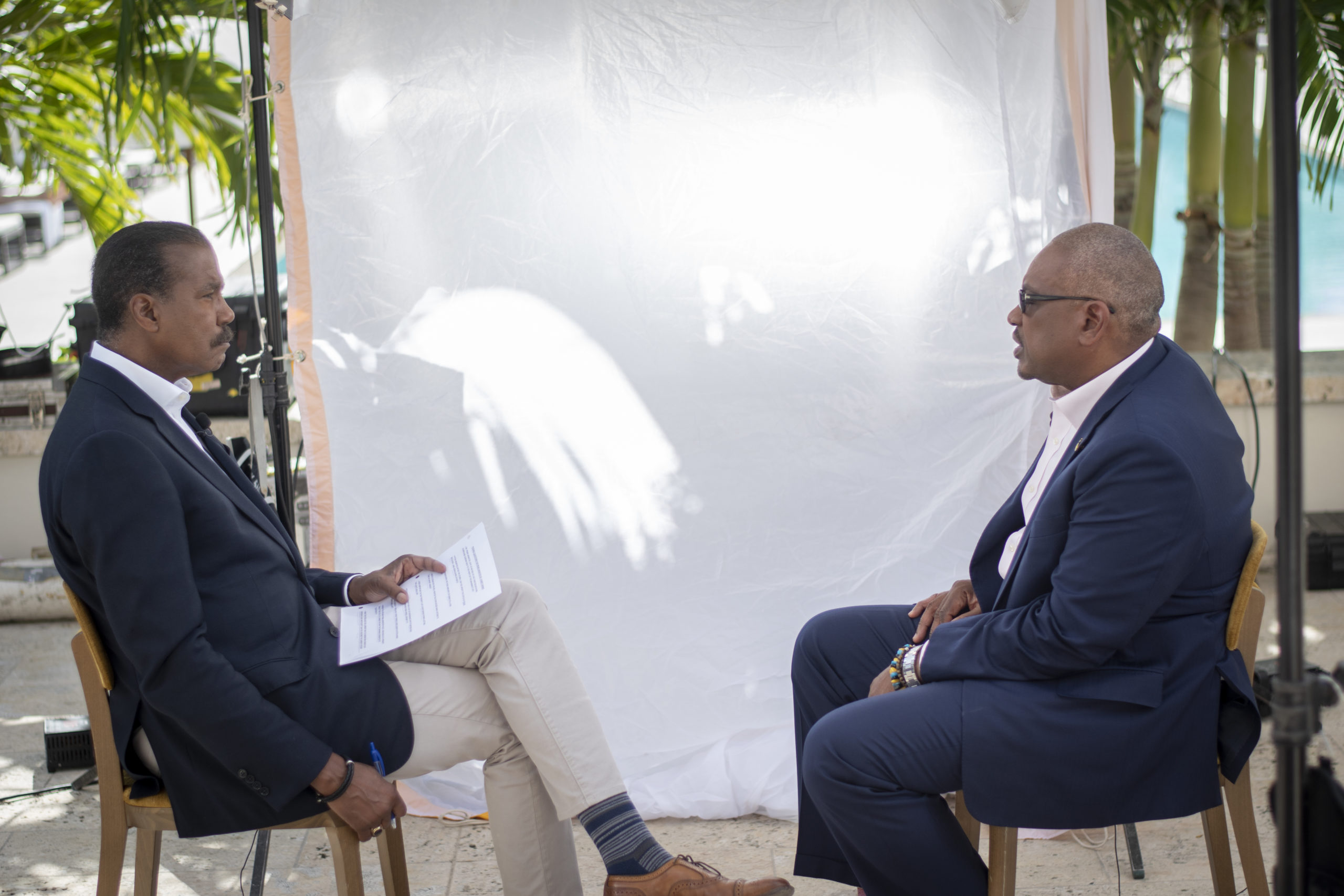Prime Minister Minnis tells 60 Minutes Bahamas can ‘set an example for the world’
In a segment of CBS’ 60 Minutes Prime Minister the Most Hon. Dr. Hubert Minnis said he is optimistic about the country’s green options and the ability of The Bahamas to show the world how to move forward after a devastating hurricane.
Prime Minister Minnis was featured on the Sunday 1 March edition of 60 Minutes, an investigative news magazine show that reaches an average of 11 million viewers each week.
The segment examined the implementation of renewable energy sources on islands like Ragged Island as an alternative to fossil fuels in the face of ever stronger hurricanes resulting from the global climate crisis.
“Let us show the world what can be done,” the Prime Minister told 60 Minutes host Bill Whitaker. “We may be small, but we can set an example to the world.”
Following Hurricane Irma in 2017, one of the ways Prime Minister Minnis resolved to rebuild a more resilient Ragged Island was through the use of microgrids or solar panels.
A microgrid would allow the island community to be disconnected from the traditional BPL energy grid and operate autonomously. The $3 million microgrid is now under construction and is being built to withstand winds of up to 180 mph, while providing clean, low-cost energy for the island’s residents.
The Prime Minister sees Ragged Island as a laboratory for the country’s solar future.
A part of the segment also focused on residents and second homeowners who are working to rebuild their lives after Hurricane Dorian devastated parts of Abaco and Grand Bahama in September 2019.
A major part of the rebuilding effort focuses on ensuring more secure electric power within the new reality of stronger and more devastating hurricane seasons.
During the segment, Chris Burgess and Justin Locke from the non-profit Rocky Mountain Institute shared plans to set up a microgrid in Marsh Harbour, Abaco, one of the areas hardest hit by Hurricane Dorian.
Within today’s global environment The Bahamas has no other alternative but to adapt to the impact of climate change, said Prime Minister Minnis. He said countries like The Bahamas will need the commitment of those nations that contribute significantly to the global warming crisis, because smaller nations cannot do it alone.
“We cannot afford it.,” said the Prime Minister. “We recognized from day one, that we cannot do it alone. First world nations make the greatest contribution to climate change. Even though our contribution to climate change is minimal, we still have a responsibility to pursue more energy- efficient options.”
__________________
3 March 2020
Office of the Prime Minister
Communications Unit
Commonwealth of The Bahamas
Contact: opmcommunications@bahamas.gov.bs
Website: www.opm.gov.bs
